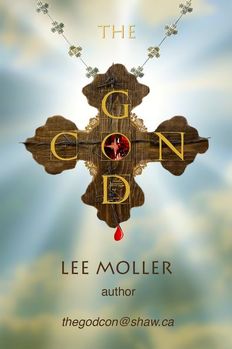|
Left and right are perfectly common words, with obvious meanings, right? Wrong.
Look up “left” in the dictionary, and it will say something like: Face north; your left arm is the one to the West. This just displaces the definition from “left” to “north”. Not very helpful. If you are standing next to someone when they ask “Which side is ‘left?”, it is easy. All you need do is point. Or point out that their heart is on the left side of their body. Easy to understand, but flawed because it is referring to shared objects that are familiar to both speaker and listener. Describing left versus right to someone on the phone is pretty easy. You might say “Look at a clock. Nine o’clock is on the left. But again, you cheated. Effectively, you have just "pointed" again by referring to an object you both understand. What if there are no shared objects? Now suppose you are talking to an alien on the other side of the universe. You gave agreed on and defined hundreds of words until you get to “left”. Is it possible to tell that alien which side is “left”? You might say “Sure! I will send a bitmap picture of something and point out that this or that bit of the image is on the left. But how did they get the bit-map? They had to print it out in some sense, and when they do, they have to decide whether to print from the left to right or right to left. If they pick wrong, their “left” and yours will not be the same, and the image they look at will be a mirror image. It turns out that it cannot be done… at least not by mere mortals like you or I. Physics and biology are full of left and right hand rules. If you point your right thumb up (north) and curl your fingers, you have just used the right hand rule to determine, for example, the direction of the Earth’s rotation (counter-clockwise), or the direction of a magnet field around a conductor (where thumb points in the direction of the current), or the direction of the spiral in DNA. Left and right are important. If you only have one hand, and you want a glove, for example. (Fun fact: If you invert a left hand glove, you get a right hand glove.) Simple sugar comes in two versions: a left-handed isomer and right-handed isomer. In our bodies, and all other critter’s bodies, we all use just the one isomer and ignore the other. Once biology made its choice, it was stuck with it. The labels of left and right are (almost) completely arbitrary. If we were to redefine right as left and vise versa, some interesting things must happen, including relabeling the poles of a magnet (north becomes south), and redefining “clock-wise” too. If you were to look down on a game of pool, there would be no way to tell if you were looking at the real image, or a mirror image. The balls would ricochet about as usual regardless. A mirror image universe would be almost indistinguishable from our own. Almost… Physicists often speak of CPT conservation. The C is for charge. Charge is always conserved. The T is for time, and says that the laws of physics are the same regardless of whether you run time forward or backward. The P is for Parity, and it essentially says that laws of physics are the same for a mirror interaction. However, a few decades ago, it was discovered that P is not conserved and that some physical interactions differ from their mirror images! That is weird. The universe cares about the difference between left and right. It turns out that Parity is not always conserved ( see the Wu Experiment for more). So, as I said, for us mere mortals, telling an alien race on the other side of the universe what direction left is is not possible. But if you are a physicist, you could tell the aliens to “go like this, then do that, and you will see such and such, you will find that certain things tend to go one way rather than the other, and that direction is ‘left’ and the opposite ‘right’.” To do the experiments involved, you will need a particle accelerator. When the results were announced that Parity was not always conserved, physicists reviewed older experiment data and discovered that the pattern was there all along, but the result was so unexpected, no one thought to look at it. Expectation bias strikes again!
1 Comment
|
AuthorLee Moller is a life-long skeptic and atheist and the author of The God Con. Archives
May 2024
Categories
All
|

 RSS Feed
RSS Feed